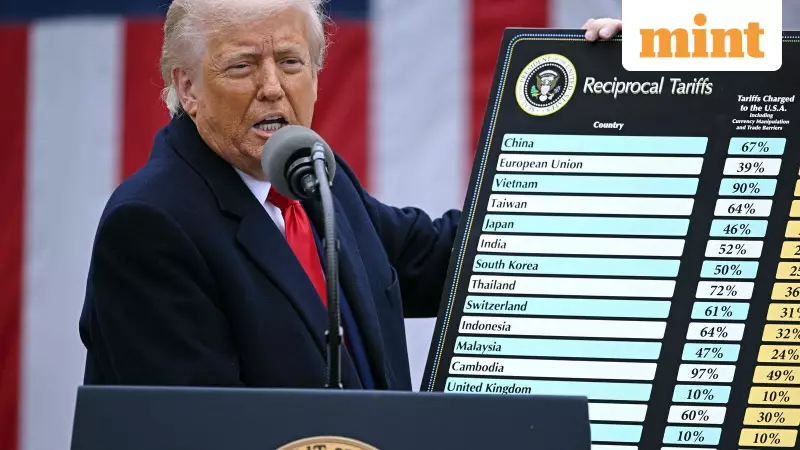
The United States and Switzerland have successfully negotiated a major trade agreement that will significantly reduce tariffs on Swiss goods from the current 39% to 15%. The White House is scheduled to announce the comprehensive details of this landmark deal on Friday, according to US Trade Representative Jamieson Greer.
"We've essentially reached a deal with Switzerland," Greer confirmed during an interview with CNBC. "So we'll post details of that today on the White House website." The Swiss government simultaneously announced the agreement through a post on X, expressing gratitude to President Donald Trump for his constructive engagement in the negotiations.
Key Benefits for Swiss Exporters
This new trade arrangement brings substantial relief to Switzerland, which had been facing the highest tariff rates imposed by the Trump administration on any developed nation. Greer clarified to reporters that the 15% tariff will encompass most-favoured-nation rates along with some existing duties, creating a structure similar to agreements already in place with the European Union.
The agreement establishes parity for Swiss exporters with their European Union competitors within the trading bloc. However, Swiss companies still face the challenge of competing against European rivals who don't have to contend with the strong Swiss franc, which recently reached a decade-high value against the euro.
Investment Commitments and Economic Impact
As part of the comprehensive agreement, Switzerland has committed to investing $200 billion in the United States during Trump's presidency, with $70 billion allocated for the next year alone. These investments will focus on key sectors including pharmaceuticals and gold smelting, according to Greer's statements.
Additionally, Switzerland has pledged to increase purchases of Boeing commercial aircraft. Major pharmaceutical companies Roche Holding AG and Novartis AG have committed to investing over $70 billion in American manufacturing and research and development operations in the coming years, though the source of remaining investment funds remains unspecified.
Important to note that pharmaceutical products, similar to gold and semiconductors, will maintain their current exemption from tariffs under the new agreement.
Agricultural Concessions and Political Implications
Under the terms of the deal, Switzerland will provide the United States with duty-free bilateral tariff quotas for 500 tonnes of beef, 1,000 tonnes of bison meat, and 1,500 tonnes of poultry meat. This represents a significant easing of Switzerland's traditionally strict agricultural trade restrictions, a move likely to generate political controversy due to the influential Swiss farmers' lobby.
Swiss Economy Minister Guy Parmelin assured reporters that the country "has not made any concessions that could threaten its neutrality or independence" throughout the negotiation process.
The agreement concludes months of intensive discussions between Swiss government officials and business leaders, following the unexpected imposition of US tariffs on Switzerland's key industries including watches, machinery, and precision instruments in August.
Swiss watchmakers, machinery manufacturers, precision instrument producers, along with food and chemicals exporters, have been most severely affected by the 39% tariff rate, according to reports from Switzerland's central bank. The resolution of this trade dispute marks a significant achievement for both nations in strengthening their economic partnership.





